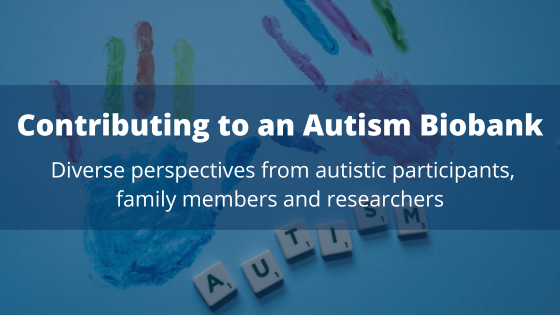A lot of autism research has focused on finding genes that might cause autism. To conduct these genetic studies, researchers have created ‘biobanks’ – collections of biological samples (such as blood, saliva, urine, stool, and hair) and other health information (such as cognitive assessments and medical histories).

The study focused on the Australian Autism Biobank, which collected biological and health information from almost 1000 Australian autistic children and their families. The researchers wanted to know what people thought about giving their information to the Biobank and why they chose to do so. They spoke to 71 people who gave to the Biobank, including 18 autistic adolescents and young adults, 46 of their parents and seven of their siblings. The findings show that people have lots of different views about autism biobanks.
This qualitative study has presented some of the key motivations and concerns of both participants and researchers contributing to one autism biobank. In so doing, it highlights the powerful role that ethical debates play in shaping the participation of researchers, parents and autistic young people in biobank research, including: (1) the potential for biobank research to help correct damaging misconceptions about autism; (2) a more general sense of the importance of scientific endeavor and a need to support it, countered by a series of concerns about how scientific research is sometimes conducted; and (3) a deeply diverse set of expectations and anxieties about the place of genetics in autism research and the implications of genetic research for autistic people’s lives.
Click to read more.
